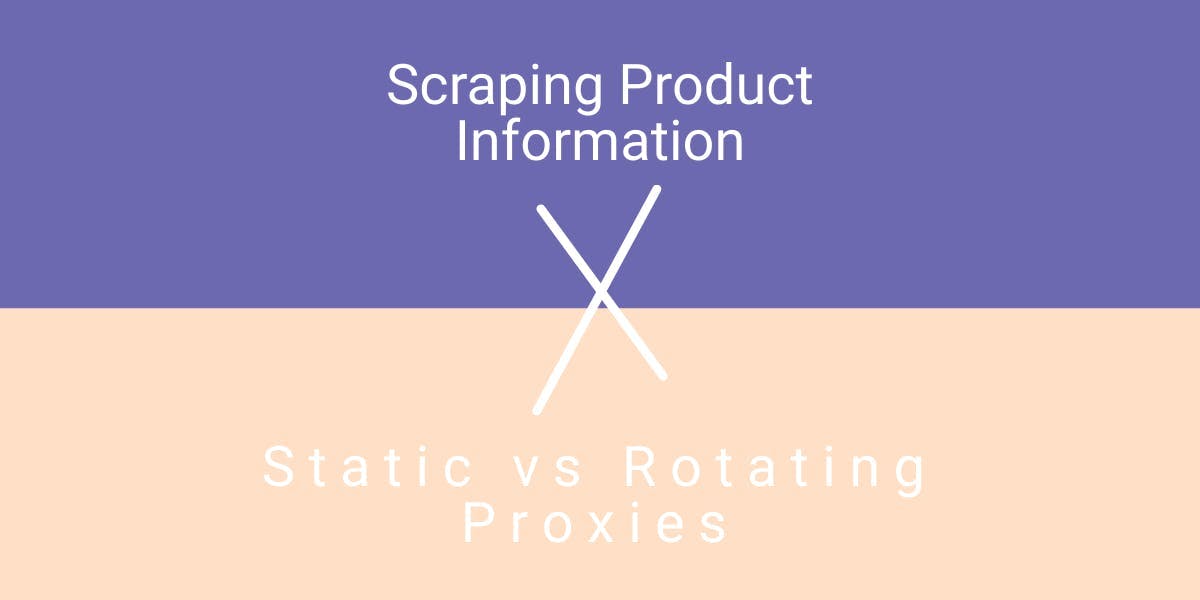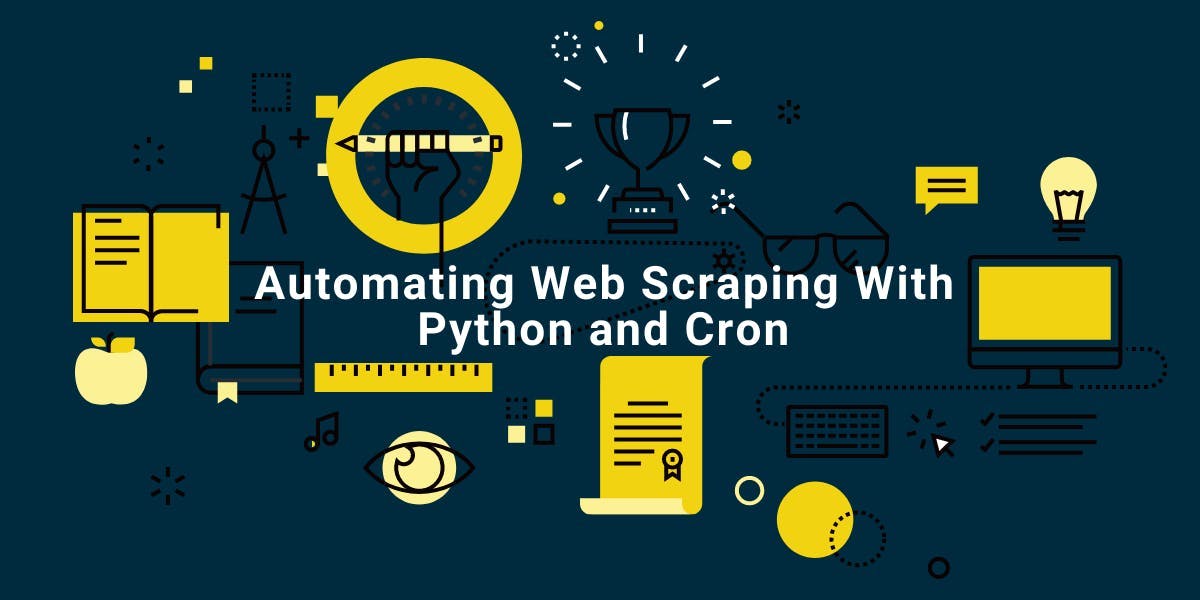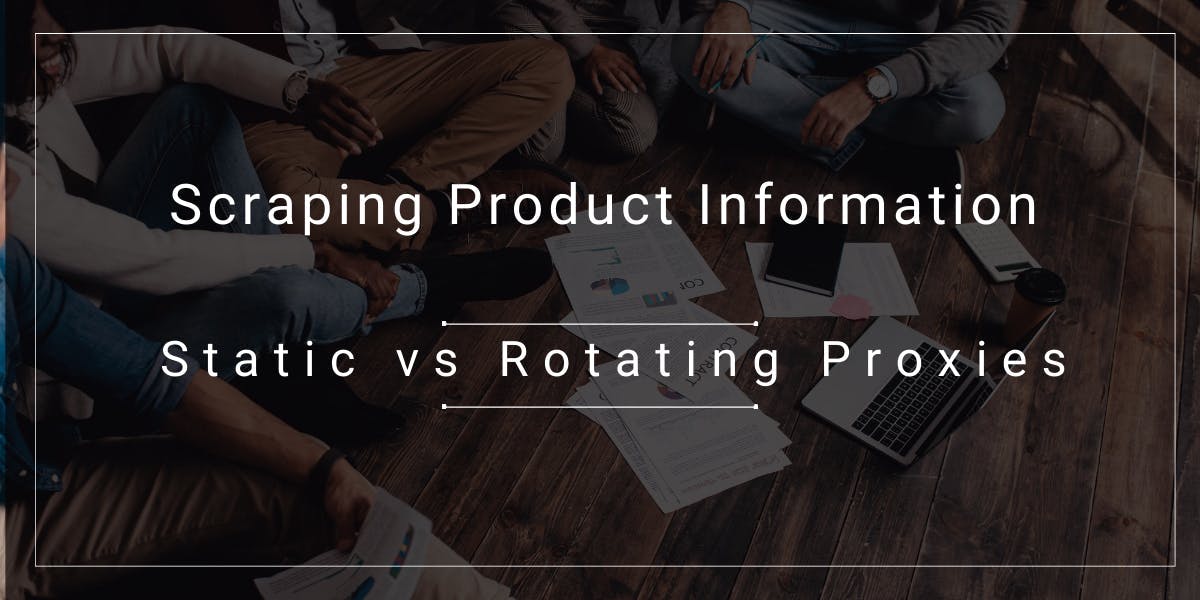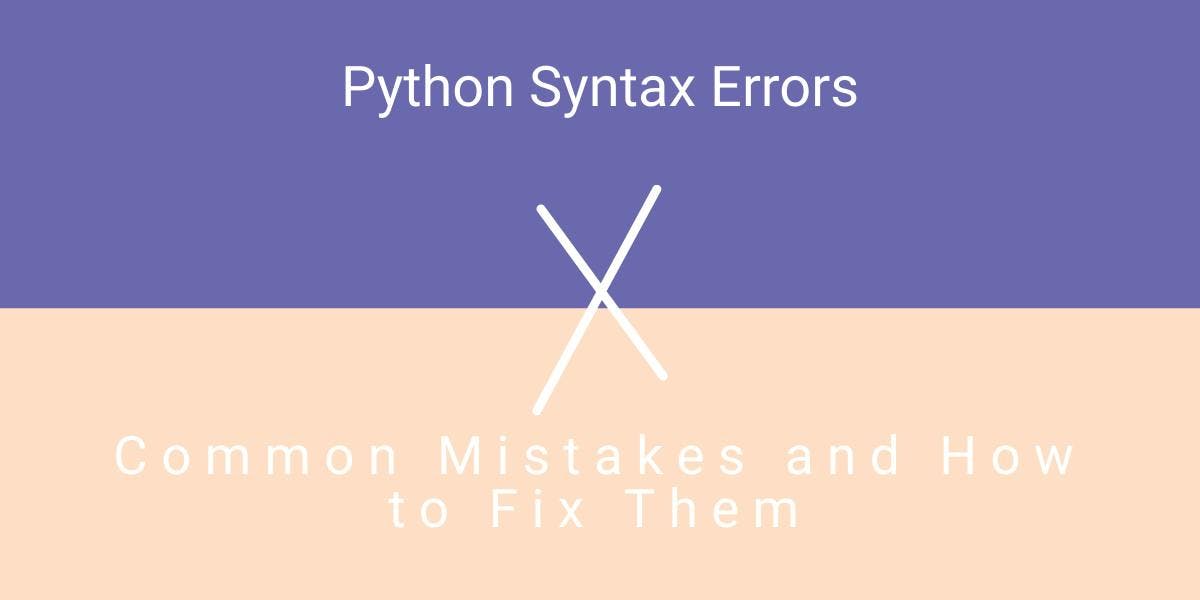Scraping Product Information: Static vs Rotating Proxies
Flipnode on Apr 25 2023

Launching a scraping operation requires careful planning and execution. From understanding the concept of bots to selecting and configuring them, there are several crucial factors to consider to avoid being blocked. One of the key decisions to make is selecting the appropriate type of proxy.
When it comes to choosing between different proxy types, understanding the distinction between static and rotating proxies is crucial. This knowledge will help you make an informed decision and select the proxy that best aligns with your business goals and requirements.
What is a static proxy?
A static proxy enables accessing the web through a single, unique IP address, usually, a datacenter IP that is assigned to you. With a static IP address, you can use the same IP for as long as necessary, making it similar to a sticky IP address. Despite being a type of proxy, a static proxy still provides benefits such as fast speed, good bandwidth, and online anonymity. However, to avoid IP bans, you need to create a logic that rotates proxies.
While static proxies are typically datacenter IPs and residential proxies are always rotating, there are some exceptions. Some proxies, such as static residential proxies or datacenter proxies with a proxy rotator feature, may be suitable for your needs, so it's important to determine the appropriate proxy type for your situation.
In some business cases, static proxies are necessary. For instance, social media managers handling multiple social media accounts may require a dedicated static proxy for each account to prevent getting blocked by the platforms for using different IPs. In marketing research, a static proxy can be helpful in obtaining consistent data from a specific location or source, especially since marketing data changes frequently.
What is a rotating proxy?
A rotating proxy differs from a static proxy in that it grants access to a dynamic pool of IP addresses. These proxies switch between IP addresses at either predetermined or random intervals. This means that every request you make may come from a different IP address, or the IP address may change every few minutes.
Using rotating proxies can enhance your online security and anonymity since requests are sent from a variety of IP addresses, often located in unrelated geographical locations.
Proxy rotator
It's important not to mistake rotating proxies with a proxy rotator. The latter is a software solution that can rotate static proxies on your behalf. This software automatically assigns IP addresses and allows you to select the intervals between IP changes. It's a valuable tool to have when using datacenter proxies.
Scraping and e-commerce industry: the close ties
What is the connection between scraping, static and rotating proxies, and e-commerce? For those in the e-commerce industry, competition is intensifying by the day, while markets are getting saturated, consumers are increasingly price-sensitive, and search engines play a crucial role in product research.
In this context, businesses in e-commerce require vast amounts of data to drive their decisions and ensure growth, market penetration, and sustainability. Product pages contain a wealth of information, beyond just price and product descriptions. Scraping product descriptions can help businesses identify keywords that competitors use to rank at the top of search engine result pages (SERPs). Monitoring user reviews can provide insights into the pain points of target customers, and tracking prices helps businesses stay informed about market prices.
Collecting data manually from product pages is time-consuming and often leads to errors in repetitive tasks. Furthermore, product page information is constantly changing, including prices, discounts, and sales. It's challenging to detect these changes and identify patterns when done manually.
Data scraping is the most efficient way to gather information for competition research. It's incredibly fast, thanks to automated bots, and provides real-time data without any hassle. The data is well-structured, allowing businesses to spot trends, and patterns, and find specific information immediately.
Now that we understand the link between scraping and e-commerce, let's explore why comparing sticky and rotating proxies is relevant in this context.
Static or rotating proxies for product information scraping
Major players in the e-commerce industry are well aware that their websites are likely to be scraped by competitors, and they may even be engaging in scraping themselves. However, scraper bots can have a detrimental impact on the customer experience by generating a significant amount of traffic in a short period, potentially slowing down or crashing an e-commerce website.
To combat this, many e-commerce websites employ anti-scraping technologies that can detect suspicious user behavior and request headers. It's easy to differentiate bots from human users today, with frequent and high-volume requests from a single IP address being one of the primary indicators. This is where the comparison between sticky and rotating proxies becomes crucial.
When undertaking a large-scale scraping operation, it's highly likely that you will get blocked, if not inevitable. Therefore, this particular use case requires either a large number of sticky proxies or rotating proxies. Some targets may require the same IP address for a specific duration, while others may need frequent proxy rotation. However, if you are unsure about the likelihood of getting blocked by the target website or how many static proxies you need to gather the required information, rotating proxies are the better option.
Conclusion
After gaining an understanding of the primary distinctions between static and rotating proxies, you now know which one to select when collecting product information from e-commerce websites.
If you're planning a significant web scraping endeavor and are unsure whether to utilize static or rotating proxies, the decision hinges on the target site. However, if you lack sufficient knowledge about the target site and the likelihood of blocking scraping, it's advisable to opt for rotating proxies.



